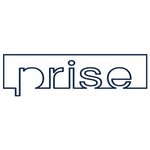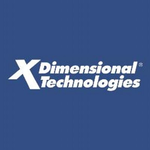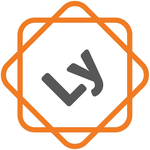Description

OneShield Policy

Solartis
Comprehensive Overview: OneShield Policy vs Solartis
OneShield Policy and Solartis are two platforms that cater to the insurance industry by providing policy management solutions among other functionalities. Let's delve into each of them separately and then compare their offerings.
OneShield Policy
a) Primary Functions and Target Markets:
- Primary Functions: OneShield Policy is a comprehensive platform designed to offer end-to-end policy management solutions. Its primary functionalities include policy administration, billing, claims management, product configuration, and business intelligence. The platform is known for its configurability, as it allows insurers to define their products and workflows easily.
- Target Markets: OneShield targets a wide range of insurance markets, including property and casualty (P&C), healthcare, and specialty lines. It is designed to serve both large insurance carriers and midsize companies looking to streamline their policy administration processes.
b) Market Share and User Base:
- OneShield has a significant presence in the P&C insurance market, with numerous mid-to-large insurers using its platform. The company has carved out a niche by focusing on flexibility and scalability, which attracts clients looking for customizable solutions.
c) Key Differentiating Factors:
- Configurability: OneShield Policy stands out for its highly configurable architecture, allowing insurers to tailor products and processes to their specific needs without heavy reliance on coding.
- Integrated Solutions: The platform offers a suite of integrated modules that work together seamlessly, minimizing the need for third-party integrations.
- Customer Support and Service: OneShield is known for its strong customer support services, which it pairs with its technological offerings to enhance client satisfaction.
Solartis
a) Primary Functions and Target Markets:
- Primary Functions: Solartis specializes in Insurance Process as a Service (IPaaS), offering automation and digital transformation services for policy administration, billing, and claims. Solartis integrates these processes with analytics capabilities, focusing on efficiency and cost-effectiveness through cloud-based solutions.
- Target Markets: Solartis targets a broader range of insurance businesses, including P&C insurers, brokers, and reinsurers. It caters to both smaller firms and larger enterprises looking for innovative and scalable technology.
b) Market Share and User Base:
- Solartis appeals to a diverse user base, particularly those looking for cost-effective, cloud-based solutions. It has been steadily growing within the market due to its flexible service offerings that can be customized to fit various business sizes and needs.
c) Key Differentiating Factors:
- Insurance on Demand: Solartis enables insurers to offer on-demand insurance products, a growing trend in the industry.
- Cloud-Based Infrastructure: The platform is built with a cloud-first strategy, emphasizing rapid deployment, scalability, and reduced IT overhead.
- Microservices Architecture: Solartis employs a microservices approach, which allows clients to use the specific services they need without purchasing a full suite.
Comparative Analysis
Market Share and User Base Comparison:
- OneShield tends to have a stronger hold in the larger enterprise sector of the P&C insurance market, whereas Solartis has been expanding in various sectors by offering more flexible, on-demand services.
- Solartis’s cloud-based approach and focus on smaller, agile implementations have allowed it to penetrate diverse market segments, but OneShield has a longer track record with larger firms.
Key Differentiators:
- Configurability vs. Flexibility: OneShield excels in providing configurable solutions tailored to existing business processes, while Solartis’s microservices and cloud-based approach offer greater flexibility and modularity.
- Integration Focus: OneShield provides a more integrated suite, suitable for firms looking to manage most processes within a single solution, whereas Solartis focuses on integrating well with other systems and allowing insurers to cherry-pick specific services.
- Innovation in Offerings: Solartis's emphasis on insurance on demand and rapid deployment reflects a modern approach to insurance technology, potentially appealing to businesses looking to innovate quickly.
In summary, both OneShield Policy and Solartis provide valuable policy management solutions but differ primarily in their approach to configurability, deployment, and market focus. The choice between the two would largely depend on an insurer's specific needs, size, desired deployment strategy, and innovation readiness.
Contact Info

Year founded :
Not Available
Not Available
Not Available
Not Available
Not Available

Year founded :
Not Available
Not Available
Not Available
Italy
http://www.linkedin.com/company/solartis
Feature Similarity Breakdown: OneShield Policy, Solartis
To provide a thorough comparison of OneShield Policy and Solartis in terms of their feature similarity, let's break down their offerings based on available data up to October 2023. This will give you insights into their core features, user interfaces, and any distinguishing characteristics.
a) Core Features in Common
Both OneShield Policy and Solartis are recognized for providing robust policy administration solutions geared towards insurance companies. Here are some core features they typically have in common:
-
Policy Lifecycle Management: Both platforms support comprehensive policy lifecycle management, which includes quoting, issuance, endorsement, renewal, and cancellation.
-
Underwriting and Rating: They offer automated underwriting processes and advanced rating engines to streamline policy pricing and risk assessment.
-
Billing and Invoicing: Integrated billing modules allow for efficient premium collection, invoicing, and payment processing.
-
Claims Management Support: While they focus on policy administration, both platforms often offer some level of integration or support for claims processing and management features.
-
Compliance and Regulatory Features: They provide tools to ensure compliance with industry regulations and standards, which is crucial for insurance companies.
-
Document Management: Automated document generation and storage are key features, helping manage policy documents, endorsements, and other necessary paperwork.
-
Data Analytics and Reporting: Both solutions offer analytics and reporting capabilities that allow insurers to gain insights into policy performance and customer data.
b) User Interface Comparison
While specific user interface (UI) details can vary between different implementations and updates, there are some general observations:
-
OneShield Policy: Known for a customizable UI that can cater to the specific needs of different users within an organization. It typically emphasizes flexibility and ease of use, with a focus on streamlining operations and reducing manual processes.
-
Solartis: Solartis usually provides a modern and intuitive interface, with a focus on operational efficiency and real-time processing. Its UI often emphasizes user-friendliness and accessibility, aiming to improve productivity through simplified navigation and task automation.
c) Unique Features
-
Unique Features of OneShield Policy:
- Extensibility: OneShield is often noted for its flexible architecture, making it highly customizable and extensible according to the unique business requirements of clients.
- Scalability: It boasts robust scalability, particularly suited for larger enterprises looking to expand their policy offerings without overhauling their existing systems.
- Integration Capabilities: Known for its seamless integration with third-party systems and legacy applications, providing a comprehensive ecosystem for insurance operations.
-
Unique Features of Solartis:
- Real-Time Processing: Solartis highlights real-time processing capabilities, offering dynamic adjustments and quick updates across policy processes.
- Microservices Architecture: It leverages microservices to provide agile and modular solutions, allowing components to be updated independently without disrupting the entire system.
- Focus on Automation: A strong emphasis on process automation and minimizing manual intervention, which can significantly enhance operational efficiencies.
In conclusion, while both OneShield Policy and Solartis offer robust core features essential for policy administration, there are differences in their approach to customization, integration, and process automation which might lead a potential user to prefer one over the other based on specific business needs.
Features

Customer Service
Billing and Payments
Policy Administration
Claims Management
Underwriting Management

Claims Management
Billing Solutions
Policy Administration
Customer Engagement
Analytics and Reporting
Best Fit Use Cases: OneShield Policy, Solartis
OneShield Policy and Solartis are both prominent platforms in the insurance industry, each serving distinct needs and preferences among businesses. Their suitability varies depending on the specific requirements of a company or project. Here's a detailed look at their best fit use cases:
a) OneShield Policy Use Cases
OneShield Policy is a comprehensive policy management system designed to cater to a wide array of insurance processes. It is particularly well-suited for:
-
Complex Insurance Products:
- Ideal for insurers that offer a wide range of complex products such as commercial lines, specialty lines, and bespoke insurance offerings. The system is robust enough to handle intricate policy structures and unique product configurations.
-
Large and Mid-sized Insurance Companies:
- Larger enterprises or mid-sized companies with significant policy volumes benefit from OneShield Policy’s scalability and sophisticated features.
-
Companies Needing Extensive Customization:
- Organizations that require tailored workflows and custom processing rules benefit from the platform's flexibility in customization.
-
Integrated Ecosystem Needs:
- Companies aiming to integrate their policy management system with other core systems such as billing, claims, and third-party applications would find OneShield's modular architecture advantageous.
b) Solartis Use Cases
Solartis is known for its focus on streamlining policy administration through a flexible and configurable cloud-based platform. The scenarios where Solartis might be preferred include:
-
High Volume Transactions:
- Particularly beneficial for insurers focusing on high-volume, low-complexity products, such as personal lines where speed and efficiency are critical.
-
Startup and Smaller Insurance Providers:
- Solartis offers an attractive option for startups and smaller insurance companies due to its cost-effectiveness and fast implementation times.
-
Companies Prioritizing Automation:
- Organizations looking to leverage automation in policy issuance and lifecycle management benefit from Solartis’ extensive automation capabilities.
-
Service-Oriented Models:
- Insurers or MGAs that prefer an as-a-service model to reduce their IT overheads would find Solartis’ cloud-based offerings aligned with their operational models.
d) Catering to Different Industry Verticals or Company Sizes
-
Industry Verticals:
- OneShield Policy is versatile across multiple verticals, including commercial, personal, life, and specialty insurance, due to its configuration and flexibility. It is adept at catering to specialized industry needs with custom products.
- Solartis is particularly strong in more standardized verticals such as personal lines or specific niche markets where speed and ease of deployment are crucial.
-
Company Sizes:
- OneShield Policy is often preferred by mid to large-sized enterprises that require robust features, scalability, and customization options.
- Solartis appeals mostly to small to medium-sized businesses looking for a cost-efficient solution with rapid deployment capacity, ideal for scaling operations without significant upfront investments in IT infrastructure.
In summary, the choice between OneShield Policy and Solartis often comes down to the complexity of insurance products being offered, the size of the insurance business, and the strategic priorities around customization, integration, and automation. Each platform excels in different areas, offering tailored solutions that cater to specific needs within the insurance sector.
Pricing

Pricing Not Available

Pricing Not Available
Metrics History
Metrics History
Comparing teamSize across companies
Conclusion & Final Verdict: OneShield Policy vs Solartis
To provide a comprehensive conclusion and final verdict for OneShield Policy and Solartis, it's important to evaluate each product based on a variety of factors, including cost, features, ease of use, scalability, customer support, and integration capabilities. Here’s a structured assessment:
a) Best Overall Value:
Overall Value Winner: Solartis
Considering all factors, Solartis edges out as the product offering the best overall value. This conclusion is drawn from its competitive pricing, robust features tailored to various insurance operational needs, and its strong focus on automating insurance processes efficiently.
b) Pros and Cons
OneShield Policy:
-
Pros:
- Comprehensive suite of features covering policy management, billing, and claims.
- Highly customizable to meet specific business needs.
- Well-suited for large insurance operations with complex requirements.
- Strong security features and compliance capabilities.
-
Cons:
- Higher cost compared to some competitors, which might not be ideal for smaller firms.
- Implementation can be complex and time-consuming, requiring significant IT resources.
- May pose a steeper learning curve for new users without prior technical expertise.
Solartis:
-
Pros:
- Competitive pricing structure makes it attractive for both small and large enterprises.
- Strong emphasis on automation and digital capabilities, enhancing efficiency.
- User-friendly interface with a relatively short learning curve.
- Offers cloud-based solutions, giving flexibility and scalability.
-
Cons:
- While feature-rich, might not offer the extensive customization options present in solutions like OneShield.
- Integration with third-party systems can be complex depending on existing infrastructure.
- Support might vary in responsiveness based on service agreements.
c) Recommendations for Users:
-
Evaluate Your Needs: If your organization requires highly customized solutions with extensive policy management capabilities, and if budget allows, OneShield Policy could be the better choice. It's especially well-suited for larger companies with complex needs.
-
Consider Budget and Resources: For companies looking for cost-effective solutions with strong automation in policy management and less complexity in deployment, Solartis is recommended. Its strong focus on efficiency and simplicity can be advantageous to small and medium-sized businesses.
-
Scalability and Future Growth: Consider long-term growth plans. Solartis, with its cloud-based solutions, offers excellent scalability and may be better suited for businesses planning to expand.
-
Engage with Demos and Trials: Both platforms should offer demos or trial periods. Engage with these to understand the usability and compatibility with your existing processes.
-
Customer Support and Training: Evaluate the kind of customer support and training programs each vendor offers. Good support can often make a significant difference during the initial implementation phase.
In conclusion, both OneShield Policy and Solartis offer distinct advantages and cater to different market segments. The final decision should align with your specific business needs, budget, and long-term strategic goals.
Add to compare




